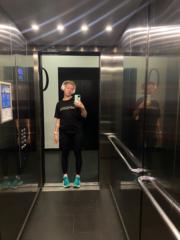Apr '25 • Challenge
Day 3 - Deep Dive : Protein 🦐
Proteins are essential macromolecules made up of amino acids, often referred to as the "building blocks of life." Protein isn’t just for bodybuilders—it’s essential for every cell in your body. Ignoring protein needs can lead to serious health declines, while optimizing intake improves strength, immunity, and beauty.
🧾Even its name hints at this. The Greek word proteos means ‘primary’ or ‘first place’.
Practice and statistics show that most people consume far less protein than they need. The restaurant industry offers us portions that consist mostly from carbohydrates and fat (cheaper, tastier).
Evolutionarily, humans want to consume carbohydrates and fat to feel full quickly, so relying on sensation is not an option.
That is why we have to create our own understanding of a balanced plate. I believe that controlling and consuming enough protein solves half the problems related to health, weight and athletic performance. We grossly underestimate the importance of protein in diets. So here is a detailed breakdown of the importance of protein.👇
🔍 Symptoms of Protein Deficiency
✔ Muscle Weakness & Loss (Sarcopenia) – Body breaks down muscle for energy.
✔ Fatigue & Low Energy – Lack of amino acids affects ATP (energy) production.
✔ Slow Recovery from Injuries – Wounds heal poorly due to insufficient tissue repair.
✔ Frequent Hunger & Cravings – Protein helps regulate appetite; deficiency leads to overeating carbs/fats.
✔ Frequent Infections – Low antibodies (immunoglobulins) weaken defense against viruses/bacteria.
✔ Mood Swings & Brain Fog – Neurotransmitters (like serotonin & dopamine) rely on amino acids.
✔ Irregular Blood Sugar – Protein stabilizes glucose; deficiency can mimic prediabetes symptoms.
✔ Dry, Flaky Skin – Reduced collagen leads to premature wrinkles.
✔ Brittle Nails – Nails become soft, peel, or develop ridges.
✔ Micronutrient Gaps: Low-protein diets often lack zinc, selenium, and vitamins C/D/E
💡 Who is at Higher Risk?
- Elderly (reduced appetite, muscle loss)
- Vegans/Vegetarians (if not balancing plant proteins properly)
- People with Eating Disorders (anorexia, bulimia)
- Athletes Overtraining Without Proper Nutrition ❗
Conclusion: Why Protein is Essential
✅ Health – Supports immunity, hormones, and organ function.
✅ Beauty – Maintains youthful skin, strong hair, and healthy nails.
✅ Muscle Growth & Repair – Critical post-workout to rebuild fibers.
✅ Fat Loss – High-protein diets boost metabolism and reduce cravings.
✅ Strength & Performance – Supports endurance and recovery.
✅ Aging Well – Preserves muscle mass as we age (sarcopenia prevention).
📊 But how much do you really need? Let’s break it down according to different goals
1️⃣ Weight Loss
- Goal: Preserve muscle while in a calorie deficit.
- Recommended intake:▶️ 1.6 – 2.2 g per kg of body weight
- Why? Protein helps preserve lean mass, increases satiety, and boosts thermogenesis
2️⃣ Running Performance / Trail running
- Goal: Fuel recovery and maintain lean muscle for endurance.
- Recommended intake:▶️ 1.2 – 1.8 g per kg of body weight /1.5-2.0 for trail runners
- Why? Runners break down muscle tissue during long runs; protein aids in recovery and adaptation.
3️⃣ Gaining Muscles (Hypertrophy)
- Goal: Maximize muscle growth with resistance training.
- Recommended intake:▶️ 1.6 – 2.4 g per kg of body weight
- Why? Resistance training increases protein turnover; a surplus is needed for muscle synthesis.
4️⃣ Fixing Overall Health (Maintenance)
- Goal: Support immune function, repair tissues, maintain lean mass.
- Recommended intake:▶️ 0.8 – 1.2 g per kg of body weight
- Why? The RDA is the minimum to prevent deficiency, not necessarily ideal for optimal function.
ROLE OF AMINO ACIDS 🧬
Proteins are made of amino acids (AAs), which are the true building blocks of life. While total protein intake is important, the spectrum of amino acids is what determines how effectively your body uses protein.
There are 20 standard AAs, categorized into:
✔ Essential Amino Acids (EAAs – 9) → Cannot be made by the body; must come from food.
✔ Non-Essential Amino Acids (NEAAs – 11) → Can be synthesized by the body if enough EAAs are present.
Each amino acid has its own function in the human body, so we need to diversify our diet with different sources of protein. Animal protein contains all the essential amino acids. Plant protein needs to be supplemented with other foods (small amount of proteins of animal origin)
🎯 Protein Hacks for Real Life
- Prioritize protein at every meal (aim for 20–40g per meal).
- Best sources: Chicken, fish, eggs, Greek yogurt, tofu, lentils, protein powder, protein drinks, cheese, seafood
- Snack smart: Cottage cheese, jerky, or a shake instead of just empty carbs.
- Avoid Breakfast with only Carbs : add eggs, protein powder , peanut butter, tuna or cottage cheese to your oatmeal, sandwich, granola or smoothie
TASK ✍️
- Do local foods research that are high in protein and choose at least 10 that you can include in your diet on a regular basis. The more of these you can find, the more varied your meals will be. Think about which of these foods you would like to eat for breakfast and which you can use to supplement your protein in the evening.
- Track your protein intake for 1 week. Reflect on how you feel and share your insights.
- Share a meal with a good protein and amino acid ratio.
4
3 comments

skool.com/become-better-runner-4238
Welcome to Better Runner ! This is where runners of all levels achieve their goals.
Powered by





